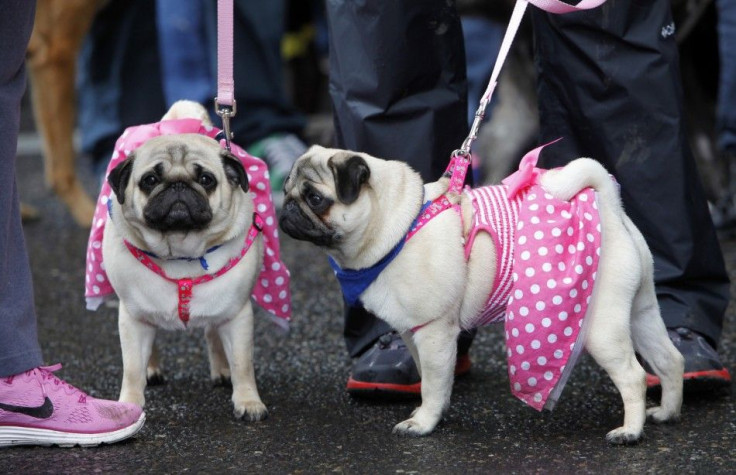Streaks of Jealousy Found Among Dogs

Dogs exhibit streaks of jealousy when their owners showered more affection or attention to another dog or human, said researchers at the University of California, San Diego (UCSD).
Though every dog owner has claimed time and again that their dogs get jealous, there was no scientific evidence to prove this. However, some researchers at the University of California studied dogs and their owners using a modified test, earlier used to test and measure jealousy among babies. The reaction of the dogs were observed and studied, while the owners played with a plastic jack-o-lantern, a book and a stuffed toy that resembled a "real" dog. The stuffed toy was made in a way that it could bark, whine and even wag its tail in the most natural manner.
It was found that while the canines did not pay much heed while their owners read a book or played with a plastic toy, they became very aggressive when the caretakers began playing and showering their affection on the stuffed toy that looked like a dog.
Throwing more light on the feeling of jealousy among dogs, study co-author Christine Harris, a psychology professor at UCSD, said, "Many people have assumed that jealousy is a social construction of human beings, or that it's an emotion specifically tied to sexual and romantic relationships. Our results challenge these ideas, showing that animals besides ourselves display strong distress whenever a rival usurps a loved one's affection."
"Our study suggests not only that dogs do engage in what appear to be jealous behaviors but also that they were seeking to break up the connection between the owner and a seeming rival," added Harris. The findings were published in a university news release.
During the test used to prove that dogs too tend to get jealous, the researchers asked the owners to ignore their canine friends and divert their attention to books, plastic toys and a stuffed toy resembling a dog, all at different times. They then observed the reaction of the dogs. The canines clearly showed extreme jealousy when the care takers paid attention to the soft toy and expressed their frustration by snapping and pushing their owners.
The study, conducted by the researchers, proves that a "sort of" primitive jealousy that exists in babies is present in dogs as well. They might have evolved to help babies fight and compete for food, affection and attention from their care takers.





















